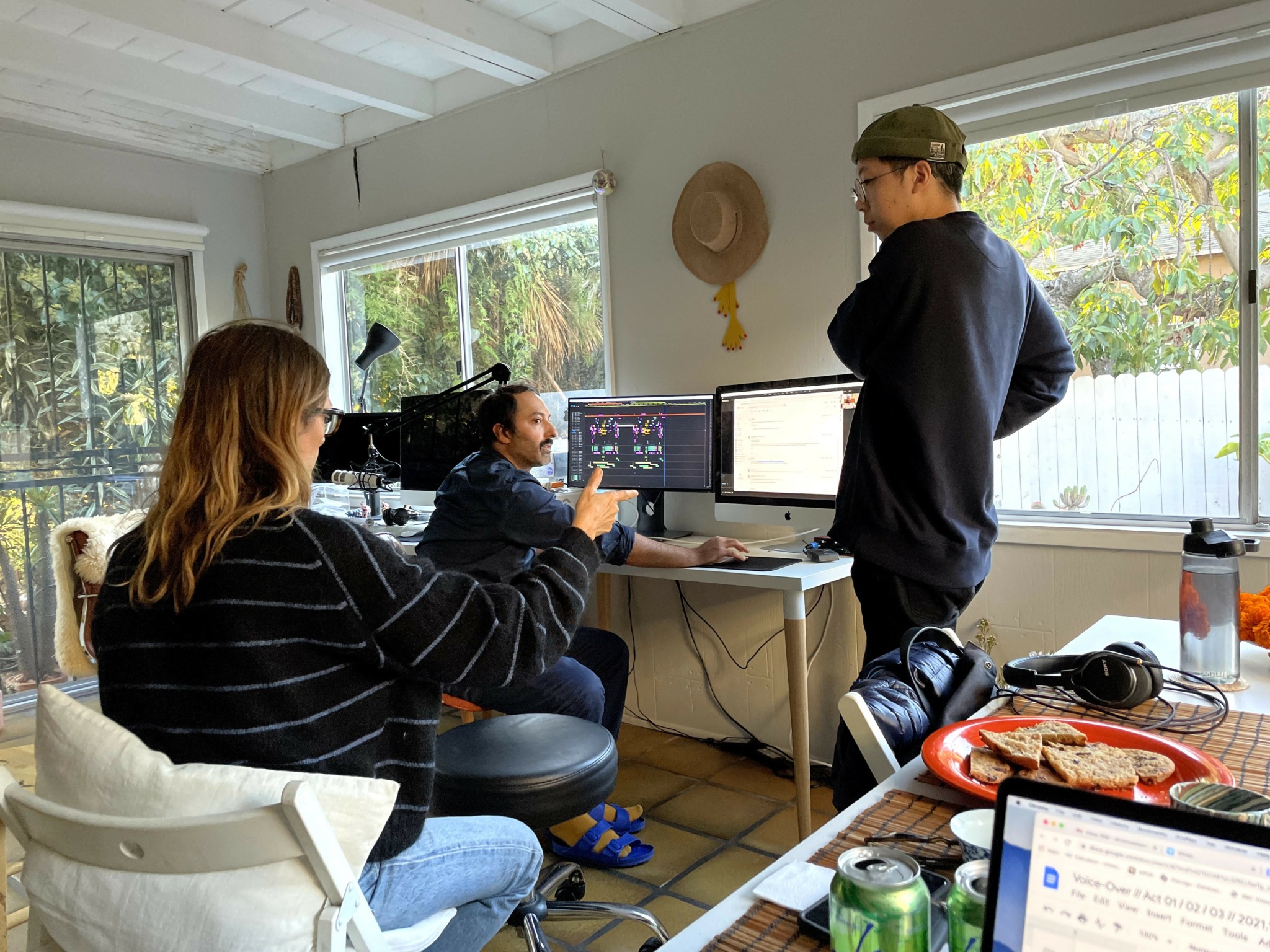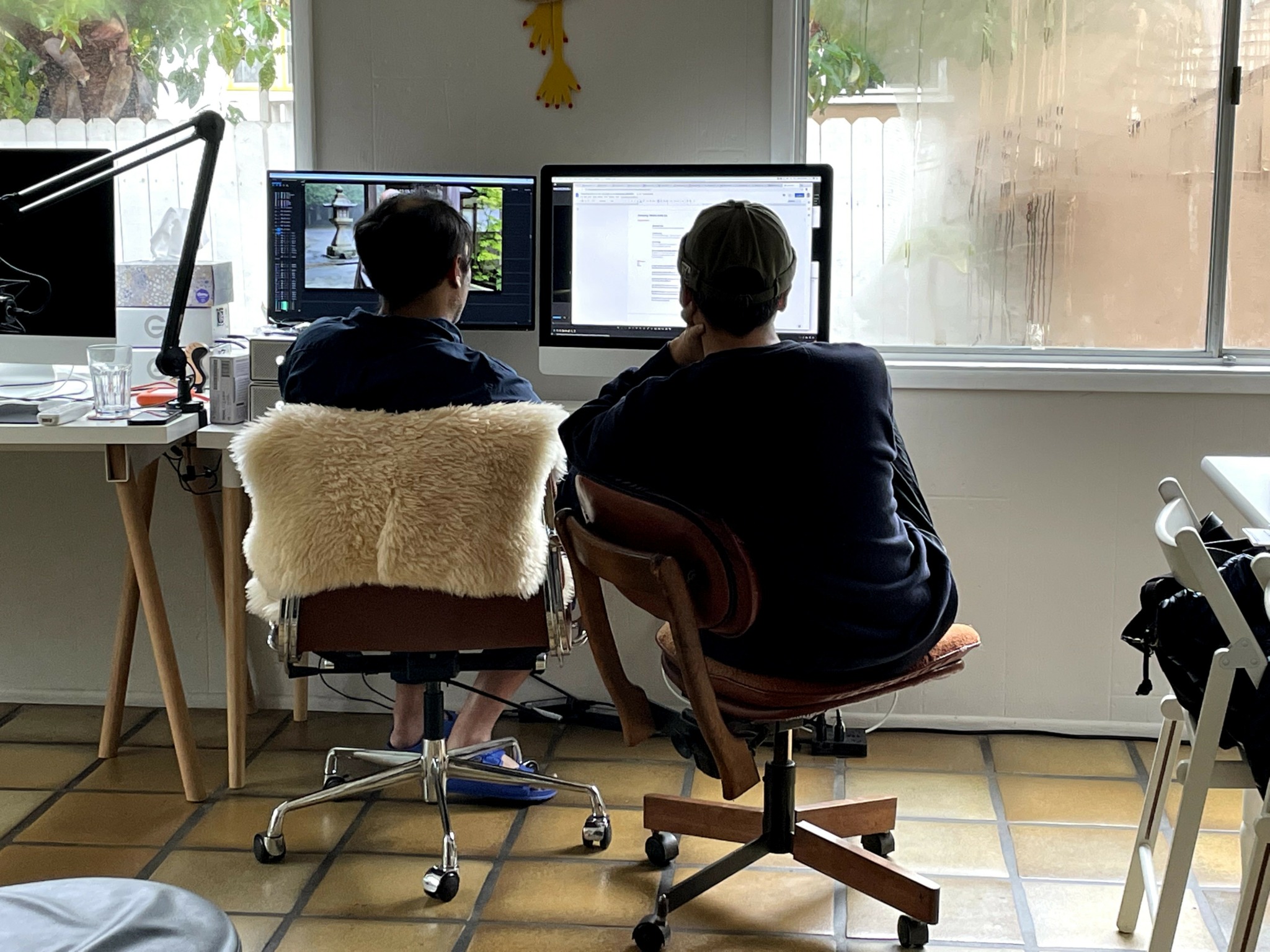We caught up with the brilliant and insightful Kuanyung Chien a few weeks ago and have shared our conversation below.
Kuanyung, looking forward to hearing all of your stories today. We’d love to hear about one of the craziest things you’ve experienced in your journey so far.
People often ask me what makes short dramas different from traditional filmmaking — and my answer is always the same: time.
In the short drama industry, we have to complete what’s essentially a feature film’s worth of content — 50 to 70 episodes (1-2min/ep) — in just four weeks. That includes editing, sound, color, subtitles, QC, and final delivery. It’s like running a marathon at sprint speed, every single month.
One of the craziest moments I remember was during a project where our team was editing six episodes a day, across three time zones. There was no “night” — when the U.S. team went to sleep, the Asia team picked up, and the cycle never stopped. Every minute counted. If one episode fell behind, the entire release schedule could collapse.
There were moments when we were still mixing the final episode while the first one was already live on the platform. It was pure chaos — hundreds of files flying across servers, editors syncing notes in real time, and coordinators tracking delivery every hour.
But the incredible thing is — we made it work. The show launched on time, hit millions of views in its first week, and the workflow we built from that chaos later became our studio’s standard operating system.
That experience taught me something essential: in this business, speed doesn’t kill creativity — it forces innovation. The constant pressure to deliver in impossible timelines is exactly what makes the short drama world so wild, and so exciting.

Kuanyung, before we move on to more of these sorts of questions, can you take some time to bring our readers up to speed on you and what you do?
I’m a Post Producer currently leading the post-production team at DramaBox, a studio that specializes in short-form, vertical dramas. These are fast-paced, emotionally driven stories designed for mobile platforms — often released in 50 to 70 short episodes, each just a couple of minutes long.
What makes this field unique is the speed. In just four weeks, we complete what’s essentially a full-length feature film — from raw footage to final delivery. My role is to oversee that entire process: managing editors, sound, color, QC, and ensuring every episode meets creative and technical standards before it goes live.
I first got into post-production because I was fascinated by how rhythm and sound could shape emotion. Over time, I became equally obsessed with systems — how to make the creative process faster without sacrificing quality. That balance between creativity and efficiency is what defines my work today.
At DramaBox, I’ve helped build a workflow that allows global teams to collaborate seamlessly across time zones. It’s incredibly rewarding to see projects move from chaos to clarity — from a thousand unorganized clips to a story that millions of people watch and feel connected to.
What I’m most proud of isn’t just the shows we’ve created, but the culture we’ve built: one that celebrates experimentation, communication, and trust under pressure. The short drama industry is intense and unpredictable, but that’s also what makes it exciting — every project feels like a fresh creative challenge.
Any advice for managing a team?
I’m incredibly proud of the culture we’ve built in our post-production office. Everyone says the atmosphere here feels good — calm but focused. We put a lot of effort into keeping it that way.
In this industry, tight deadlines and constant revisions can easily create burnout or internal competition. I’ve seen how the “grind culture” can destroy creativity, so my goal as a leader is to build the opposite — a space where people feel trusted, supported, and respected.
We encourage everyone to work in their most comfortable state, whether that means listening to music, taking breaks when needed, or communicating openly when things get stressful. When people feel safe and valued, they naturally do their best work.
I believe that high morale doesn’t come from pressure — it comes from balance and trust. If the team feels that their well-being matters as much as the project, the results always exceed expectations.

What do you think is the goal or mission that drives your creative journey?
Yes — my goal has always been to make short-form storytelling feel cinematic.
The short drama format is still young, and many people used to see it as disposable entertainment. But I believe it has the power to move people just as deeply as any film or TV series — it just speaks a different language. Every cut, sound, and transition has to carry meaning because we only have seconds to connect emotionally.
As a Post Producer, my mission is to help our editors, sound designers, and colorists find that emotion in every moment — to create something beautiful even under extreme time pressure. We’re not just finishing content; we’re shaping how this new generation of audiences experiences stories on their phones.
I see this as an opportunity to redefine what “quality” means in fast-paced media. It’s about proving that speed and artistry can coexist, and that even a one-minute story can leave a lasting impact.
Contact Info:
- Website: https://www.dramaboxapp.com/

